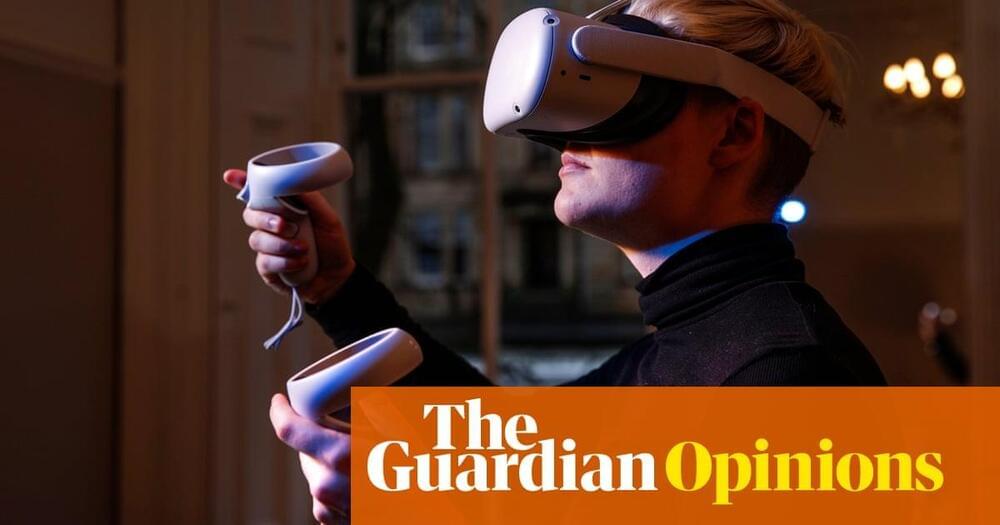Ask 50 people what the metaverse means, right now, and you’ll get 50 different answers. If a metaverse is where the real and virtual worlds collide, then Instagram is a metaverse: you create an avatar, curate your image, and use it to interact with other people. What everyone seems to agree on, however, is that it’s worth money. Epic Games and the recently rebranded Facebook are investing billions a year in this idea. When Microsoft bought video game publisher Activision for $70bn last week, it was described as “a bet on the metaverse”.
The tech world seems to be leaning towards some kind of early 00s conception of wearing a VR headset and haptic suit and driving a flying car towards your perfect pretend mansion in a soothingly sanitised alternate reality, where you can have anything you want as long as you can pay for it. Look at Mark Zuckerberg’s now-infamous presentation of the future of his company, with its bland cartoonish avatars and emptily pleasant environments. It is the future as envisioned by someone with precious little imagination.
I do not deny that some people want this vision. Ready Player One was a runaway hit. But the metaverse as envisioned by the people currently investing in it – by tech billionaires such as Zuckerberg and Activision CEO Bobby Kotick, by techbro hucksters selling astonishingly ugly generative-art NFTs and using words like “cryptoverse” – can only be described as spiritually bereft. It holds no interest for me.
